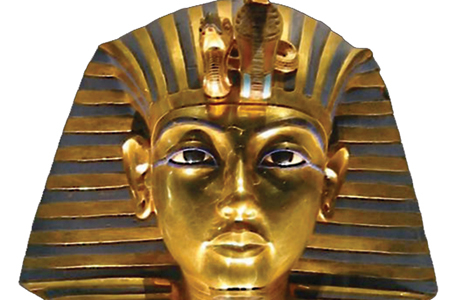I have a friend – a vibrant woman and superb hostess – who always responds to good news in the same way.
“Super,” she says.
But what does that really mean and how and why has the word come to define modern times?
Let’s go to Merriam-Webster’s Collegiate Dictionary, 11th edition, shall we? There super is defined as “of high grade or quality”; “a generalized term of approval”; “very large or powerful” and “exhibiting the characteristic of its type to an extreme or excessive degree.”
Unencumbered by any hyphen, it precedes four pages of compound words, everything from “superabsorbent” – that must be some really great paper toweling – to “superwoman.”
In an age when the United States is often described as the sole remaining superpower and gourmands happily plunge into meals that are supersized, perhaps while watching the Super Bowl or taking in one of the deathless movies featuring a superhero, “super” has become, well, a super go-to word.
Thank the Romans, says Rebecca Hyland at Yahoo! Answers. The word comes from the Latin, meaning “above,” from the defunct “insuper,” meaning “balance left over.” Along the way, super acquired a family that included insuperable and superior (14th century), superfine (15th century), superintendent (16th century), supernumerary (17th century), soprano and soubrette (18th century).
It was not until the 20th century that super really took off. It began with George Bernard Shaw’s “Man and Superman” (1903). Then Sigmund Freud added the super-ego (1920).
At the end of that decade, Irving Berlin gave us the song “Puttin’ on the Ritz,” which includes the lines, “Dressed up like a million-dollar trooper, tryin’ hard to look like Gary Cooper (super-duper).”
Then came Superman himself, born not on the planet Krypton but in 1933 Cleveland from the brains of high school students Jerry Siegel (the writer) and Joe Shuster (the artist), who sold their creation five years later to what became DC Comics. With Superman being “faster than a speeding bullet, more powerful than a locomotive, able to leap tall buildings in a single bound,” as the 1950s TV series told us, audiences got caught up in superpowers, his and those of other superheroes like Batman and Iron Man.
While super and superpowers enhanced the escapism of pop culture, the words had real and deadly consequences in the tumultuous geopolitical landscape. There were superatoms, super bombs and super submarines, all controlled by the superpowers.
Exulting in its superpower status, America went into, superdrive. Actors and athletes were no longer stars, but superstars.
The Super Bowl, which has been contested since 1967, became a national holiday. And when you didn’t know how to describe your joy in the ineffable, you could simply say it was “supercalifragilisticexpialidocious,” a la the 1964 Disney movie “Mary Poppins.”
So perhaps it was inevitable that super should encounter a super backlash. The obesity epidemic arising from supersized meals and drinks led to the 2004 documentary “Super Size Me,” in which filmmaker Morgan Spurlock gained almost 25 pounds by deliberately eating only at McDonald’s for a month. It also spurred New York City Mayor Michael Bloomberg to try to ban supersized sodas. With the supersized recession of 2008-09, many sought to downsize their homes and cars as well. Bigger became far from better.
Maybe it’s just time to return super to its rightful place as a word that measures quality, not quantity. In the new film “Saving Mr. Banks,” about Walt Disney bringing P.L. Travers’ “Mary Poppins” books to the screen, the starchy Travers (Emma Thompson) objects to the supersized spoonful of sugar approach taken by Disney (Tom Hanks), so much so that the songwriters hide the sheet music for “Supercalifragilisticexpialidocious” as she proceeds to lecture them – in very Mary Poppins-like fashion – about their penchant for made-up words.
To which we’d like to say, calm thyself, Miss Travers: Disneyfied or not, it’s still a super story.





